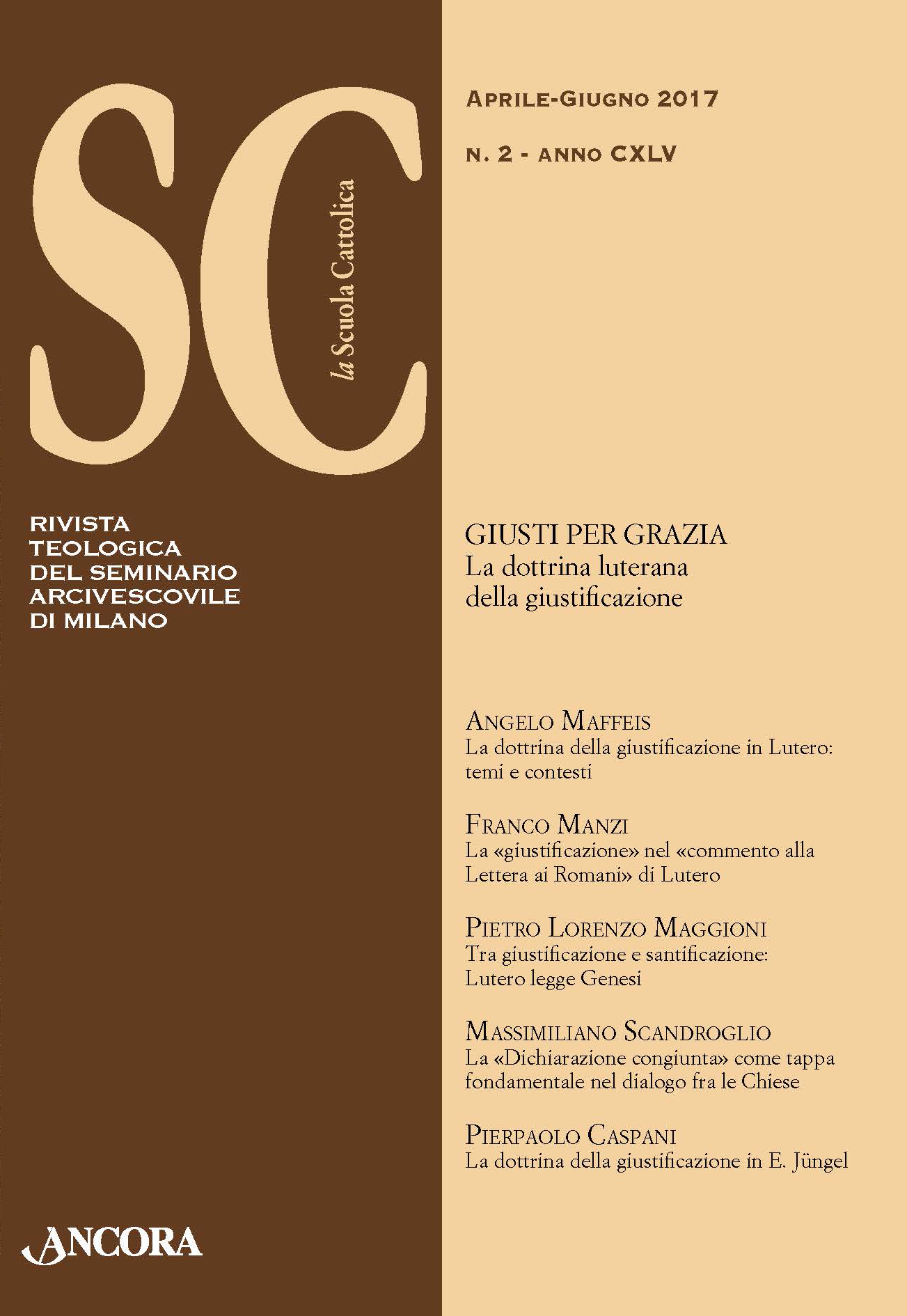La «giustificazione» nel «Commento alla Lettera ai Romani» di Lutero
DOI:
https://doi.org/10.82477/sc.v145i2.3946Abstract
In Luther’s «Commentary on the Epistle to the Romans» God’s «justification» is expressed in truly juridical terms: and hence not only as «extraneous» to man, but also as «imputed» to him by God. However the «justification» is effective to the point that in the baptized individual sin, though it persists, is no longer «dominant», but «dominated». Moreover, Luther drew from the Bible the truth of faith regarding the efficacy of God’s word, which, when declaring that the baptized person is just, renders him such in eality. These two themes, both clearly present in the «Commentary», show the validity of a broader thesis: that the linguistic and conceptual system with which Luther expressed the notion of «justification» is irreducibly different from that of Trent, although it is not incompatible with it.


